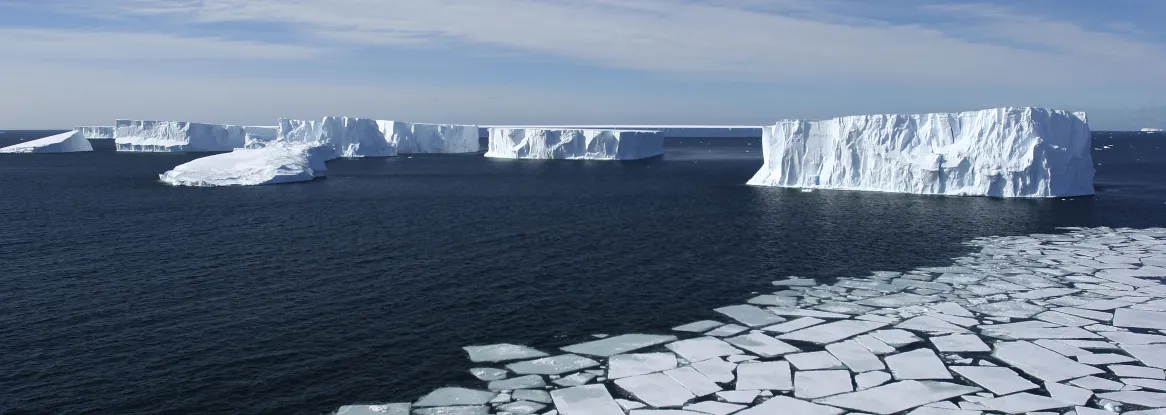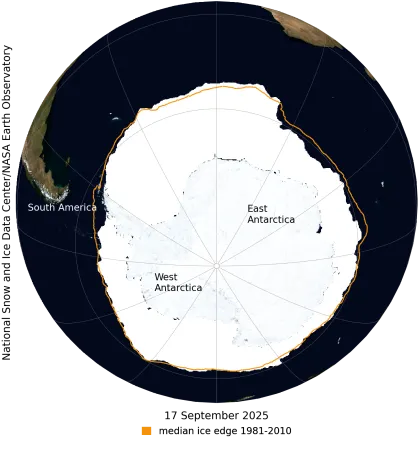Antarctic sea ice has likely reached its maximum extent for the year, at 17.81 million square kilometers (6.88 million square miles) on September 17, according to scientists at the National Snow and Ice Data Center (NSIDC) at the University of Colorado Boulder (CU Boulder). The 2025 maximum is the third lowest in the 47-year satellite record. The record low maximum occurred in 2023.
"The lengthening trend of lower Antarctic sea ice poses real concerns regarding stability and melting of the ice sheet. However, it may also be leading to greater snowfall over the continent, which would slow the progression of sea level rise," said senior research scientist Ted Scambos of the Cooperative Institute for Research in Environmental Sciences (CIRES) at CU Boulder.
NSIDC scientists stress that the Antarctic sea ice extent number is preliminary—weather conditions could still push the ice extent higher as happened in 2002 and 2017.
NSIDC is part of CIRES at CU Boulder.
Visit NSIDC’s Sea Ice Today page for more details and images.
For more information
Read Has Antarctic sea ice hit a breaking point?

